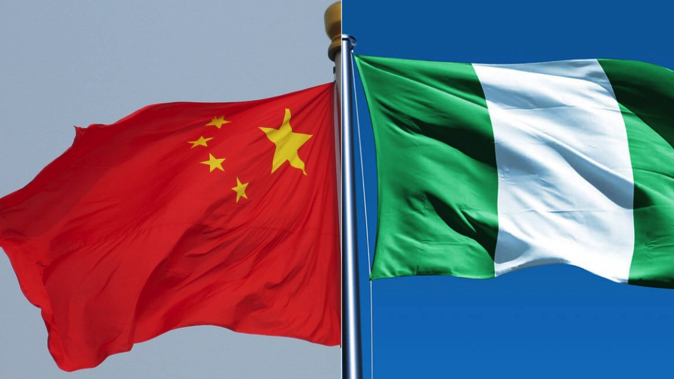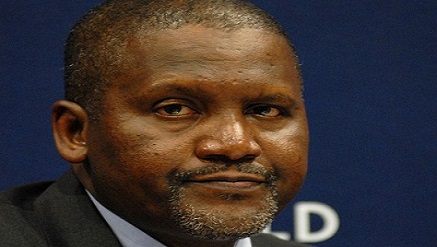News
Spending on Telecom, Pay TV Services Hobbled by Inflation – IDC

International Data Corporation (IDC) Worldwide Semiannual Telecom Services Tracker, has reported that worldwide spending on telecommunication and pay TV services will reach $1,55-trillion in 2023, an increase of 3 per cent over 2022.

The latest forecast is one percentage point higher than the previous forecast published in May.
This is the third increase in the forecast in the last 12 months with inflation being the primary driver.
The geographic regions seeing above-average forecast revisions are the Middle East and Africa (MEA), and Latin America.
This is mainly a consequence of hyperinflation happening in countries such as Turkey, Uganda, Egypt, and Argentina where it has become normal to see quarterly ARPUs (average revenue per user) growing by more than 50% on a yearly basis.
On the other hand, expectations for the telecom services market in Western Europe have been lowered slightly primarily due to a worsened economic environment in a few key countries including Germany.
IDC believes this is the first sign of a new market force emerging that will put the current growth rates under pressure and slowly bring them down toward the end of the forecast period.
Inflation is certainly a global phenomenon, but the trends it shapes in different local markets vary significantly. In many countries, telecom operators were allowed by regulators to increase their tariffs (often applying a Consumer Price Index model), resulting in healthy service revenue growth on an annual basis.
In other countries, however, this move drove the accelerated migration of customers to cheaper tariff packages and cheaper operators so the value growth rates were much lower than the nominal tariff increases.
A third group includes countries such as Italy, where the competitive situation did not permit operators to do any tariff adjustments.
And among a fourth group of countries, mainly the developing countries in Eastern Europe and Africa, tariff increases were prevented by the populations’ low purchasing power.
An analysis by type of telecom services confirms that the well-known trends continue despite the changes in top-line forecasts.
Mobile is and will remain the largest segment driven by the growth in mobile data usage and machine-to-machine (M2M) applications which are offsetting declines in spending on mobile voice and messaging services.
The fixed data services segment will also grow driven by the need for higher bandwidth services will fall over the forecast period as rapidly declining TDM voice revenues are not being offservices. Spending on fixed voice set by the increase in IP voice.
The traditional Pay TV market will decline slightly over the forecast period due to the growing popularity of video on demand (VoD) and over the top (OTT) services, but these services will remain an important part of the multi-play offerings of telecom providers across the world.
Prices of all goods and services have been increasing for quite some time. Economic growth has recently started to decelerate following increases in central bank interest rates.
Consumers and businesses have been under pressure as they try to maintain a balance between rising costs and limited budgets. Although the elasticity of the telecom services is relatively low, and it is hard for customers to imagine everyday life without them, any excessive tariff increases might affect demand.
“Operators need to carefully evaluate every single market for tolerance to price increases,” said Kresimir Alic, research director, Worldwide Telecom Services at IDC.
“They should continuously assess and compare the product mixes, quality of services, pricing, and customer support capabilities of all supply-side participants. That information should help them find a magic percentage that will not scare the customers away, have positive impact on revenues, and help them maintain healthy margins in these turbulent times.”
News
China Expands Zero-Tariff Trade for Nigeria, 52 Other African Nations

China has announced the full implementation of a zero-tariff scheme for 53 African countries, including Nigeria, under the Changsha Declaration, further strengthening economic ties within the Forum on China-Africa Cooperation (FOCAC).

The announcement, made by China’s Ministry of Foreign Affairs, followed a high-level meeting between Chinese officials and African foreign ministers in Changsha. The initiative stems from commitments made during the 2024 Beijing Summit of FOCAC, which focused on building a stronger China-Africa partnership in a rapidly evolving global landscape.
According to a statement released after the meeting, the representatives of China, 53 African nations, and the African Union Commission affirmed their commitment to creating an “all-weather China-Africa community with a shared future for the new era.”
The declaration highlighted the rising influence of the Global South and underscored the importance of collaboration in advancing development, multilateralism, and equitable global governance. It also criticized growing unilateralism, protectionism, and economic coercion, calling on countries, particularly the United States, to resolve trade disputes through mutual respect and dialogue.
The ministry stressed that African nations face pressing economic and developmental challenges that demand urgent international attention. It urged for increased development assistance, rather than cuts, to support poverty reduction and infrastructure growth across the continent.
In a significant move, China committed to expanding zero-tariff treatment to 100 percent of tariff lines for all 53 African countries with diplomatic relations with Beijing, excluding Eswatini, which has no official diplomatic ties. This will allow greater access for African goods to the Chinese market.
For Africa’s least developed countries, the plan includes enhanced market access measures, streamlined inspection and customs procedures, and increased technical training and trade facilitation.
Additionally, China pledged support for the African Union’s Agenda 2063, with a focus on modernization and sustainable development.
The Chinese government also announced plans to implement the China-Africa Economic Partnership for Shared Development, deepen cooperation in green industries, e-commerce, science and technology, artificial intelligence, finance, and legal frameworks.
The statement also reaffirmed plans to strengthen people-to-people ties, including initiatives like the “2026 Year of People-to-People Exchanges.”
In September 2024, President Bola Tinubu signed five memoranda of understanding during a meeting with Chinese President Xi Jinping.
Speaking at the Beijing summit, Tinubu described the China-Africa relationship as a “true testament” to the strength of mutual respect and cooperation.
Foreign Affairs Minister Yusuf Tuggar later confirmed that the agreements signed with China are in various stages of implementation.
News
Aliko Dangote Signs out @ Dangote Sugar Refinery as Chairman

In a major leadership transition, Dangote Sugar Refinery Plc (DSR) has announced the retirement of Aliko Dangote, its founder and chairman, from the Board, effective June 16, 2025.

Aliko Dangote
The announcement was made in a regulatory filing with the Nigerian Exchange Ltd on June 11, highlighting the company’s commitment to sound corporate governance and structured succession planning.
In a statement signed by Mrs. Temitope Hassan (FCIS), company secretary and legal adviser, the Board praised Dangote’s extraordinary leadership and lasting contributions to the company.
“Alhaji Aliko Dangote is one of the founding Directors of the Company and has served with exceptional leadership, integrity, and vision since 2005,” the statement read.
“Under his stewardship, Dangote Sugar Refinery transformed significantly, navigated industry changes, consistently delivered value to shareholders, and upheld strong governance principles.”
Widely regarded as Africa’s most influential industrialist, Dangote led DSR’s evolution into a dominant player in Nigeria’s sugar value chain.
His strategic initiatives, particularly the Backward Integration Projects (BIPs) across Adamawa, Taraba, and Nasarawa States, advanced the company’s self-sufficiency goals and aligned with the federal government’s national sugar master plan.
While stepping down from DSR, Dangote will continue as President of Dangote Industries Limited.
His legacy at DSR is marked by industrial innovation, strategic foresight, and sustained operational excellence.
To ensure a seamless transition, the Board has appointed Mr. Arnold Ekpe, a seasoned independent non-executive director, as the new chairman, effective June 16.
Ekpe is renowned for his tenure as Group CEO of Ecobank Transnational Incorporated, where he championed pan-African financial inclusion and institutional growth.
His extensive experience in banking and corporate governance is expected to strengthen DSR’s next phase of development.
The leadership change signals continuity of vision, with DSR reaffirming its focus on operational efficiency and long-term value creation in a dynamic market.
For shareholders and industry observers, Dangote’s exit from the Board marks the end of a transformational era—one defined by bold ambition and strategic execution—while opening a new chapter under Ekpe’s leadership.
News
Report Reveals New Malware Posing as an AI Assistant Steals User Data

Kaspersky Global Research & Analysis Team researchers have discovered a new malicious campaign which is distributing a Trojan through a fake DeepSeek-R1 Large Language Model (LLM) app for PCs.

The previously unknown malware is delivered via a phishing site pretending to be the official DeepSeek homepage that is promoted via Google Ads.
The goal of the attacks is to install BrowserVenom, a malware that configures web browsers on the victim’s device to channel web traffic through the attackers servers, thus allowing to collect user data – credentials and other sensitive information. Multiple infections have been detected in Brazil, Cuba, Mexico, India, Nepal, South Africa and Egypt.
DeepSeek-R1 is one of the most popular LLMs right now, and Kaspersky has previously reported attacks with malware mimicking it to attract victims. DeepSeek can also be run offline on PCs using tools like Ollama or LM Studio, and attackers used this in their campaign.
Users were directed to a phishing site mimicking the address of the original DeepSeek platform via Google Ads, with the link showing up in the ad when a user searched for “deepseek r1”.
Once the user reached the fake DeepSeek site, a check was performed to identify the victim’s operating system. If it was Windows, the user was presented with a button to download the tools for working with the LLM offline. Other operating systems were not targeted at the time of research.
After clicking on the button and passing the CAPTCHA test, a malicious installer file was downloaded and the user was presented with options to download and install Ollama or LM Studio.
If either option was chosen, along with legitimate Ollama or LM Studio installers, malware got installed in the system bypassing Windows Defender’s protection with a special algorithm.
This procedure also required administrator privileges for the user profile on Windows; if the user profile on Windows did not have these privileges, the infection would not take place.
After the malware was installed, it configured all web browsers in the system to forcefully use a proxy controlled by the attackers, enabling them to spy on sensitive browsing data and monitor the victim’s browsing activity.
Because of its enforcing nature and malicious intent, Kaspersky researchers have dubbed this malware BrowserVenom.
“While running large language models offline offers privacy benefits and reduces reliance on cloud services, it can also come with substantial risks if proper precautions aren’t taken.
Cybercriminals are increasingly exploiting the popularity of open-source AI tools by distributing malicious packages and fake installers that can covertly install keyloggers, cryptominers, or infostealers.
These fake tools compromise a user’s sensitive data and pose a threat, particularly when users have downloaded them from unverified sources,” comments Lisandro Ubiedo, Security Researcher with Kaspersky’s Global Research & Analysis Team.

 General News1 day ago
General News1 day agoAfDB to Provide $184.1mfor Africa’s Largest Solar Energy, Battery Storage Project

 Telecom2 days ago
Telecom2 days agoMTN and Ecobank Launch Chess Championship to Empower Nigeria’s Youth

 Telecom2 days ago
Telecom2 days agongCERT Issues High Alert to Nigerians Using Android Phones

 E-Business2 days ago
E-Business2 days agoAfrican Startups Raised $345m in Funding in May

 General News2 days ago
General News2 days agoOSGOF, NASRDA Partner to Boost Geospatial Data, Others

 News1 day ago
News1 day agoReport Reveals New Malware Posing as an AI Assistant Steals User Data

 News2 days ago
News2 days agoNigeria Police Dismantle WhatsApp Scam Syndicate, Freeze Millions

 Telecom1 day ago
Telecom1 day agoMTN Mulls Establishment of Fintech Firm in Nigeria, Others




























